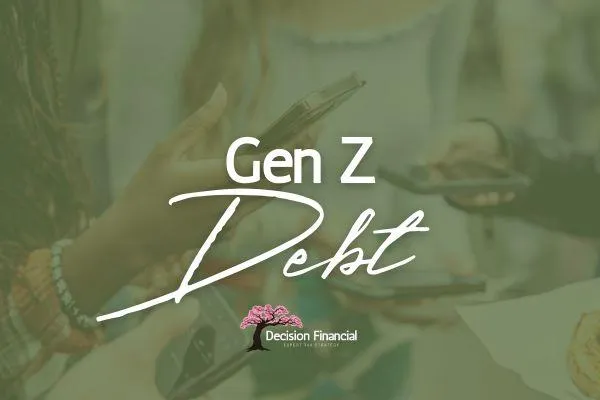I owe, I owe, so off to work I go!

According to a recent study by TransUnion, those in their early 20s are grappling with lower earnings, higher debt, and increased delinquency rates compared to their Millennial counterparts at the same age.
This alarming trend begs the question: What is the root cause, and how can we collectively work towards a solution?
Gen Zers, like their millennial counterparts, are facing economic crises early in their careers. The COVID-19 pandemic has hit Gen Zers hard, just as the global financial crisis did for millennials. But the situation is even more dire for Gen Zers, who are also dealing with high inflation. This is driving up prices across the board, from gasoline to food to interest rates. The result? Many Gen Zers are being pushed into relying more on their credit cards, with the skyrocketing costs of rent being a significant factor.
The average rent is $1,516 a month, or $18,192 annually. The average hourly pay for an entry-level job is $16.02 an hour, or $33,322 annually. Deduct minimal taxes from this; the average take-home pay annually is $26,994. After paying rent, the remaining annual pay for groceries, health insurance, auto insurance, and utilities is $8,802. I know that my daughter’s student loan payment annually is $12,000. Just only that debt would put her in a negative every year. This is why children stay on their parent’s health insurance plan, car insurance, and cell phone carrier just because they can’t survive. Or they are forced to move back home.

So, what can we do to help Gen Zers overcome their financial challenges? Here are some actionable steps:
-
Financial Education. Financial education in schools can enhance their knowledge and help them manage their finances. This should include budgeting, saving, investing, and debt management. It can be as simple as paying your child an allowance and taking them to the bank to deposit half of their allowance in a savings account. Do this with them every time they get paid. Then, show them how much more money they earn by saving it every quarter.
-
Debt Repayment strategies. Snowball method, where you pay off the smallest of all your loans as quickly as possible. Then, once that loan is paid off, add that money to the payment of the other, and so on. Or the Avalanche method, where you pay off the debt with the highest interest rate and then work down to the lowest interest rate.
-
Encouraging financial responsibility. Social media, peer groups, and community initiatives can help create an environment that encourages positive financial behaviors.
-
Dealing with the root of the problem – housing and student loan debt. Regarding housing, incentivize the construction of more affordable housing with tax breaks or zoning reforms. Homeownership assistance programs. Does anyone remember the first-time home buyer credit? Regarding tuition, base the tuition repayment on income. If the student is making $0, they pay $0. If they are making $100,000, they pay $1,000+ a month.
By providing Gen Zers with the necessary tools, resources, and support, we can help empower them to make stronger financial decisions and achieve independence.
